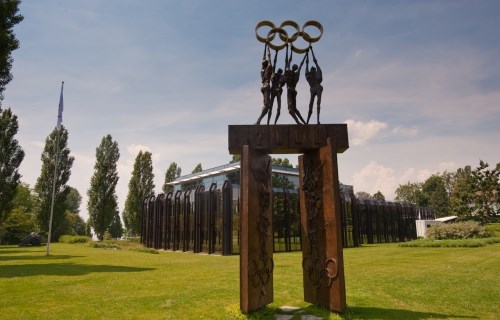IOC reveals ‘strategic roadmap’
At a ceremony in Lausanne this week, president of the International Olympic Committee (IOC) Thomas Bach presented the 20+20 proposals that will make up the 2020 Agenda, the ‘strategic roadmap for the future of the Olympic movement’.
The proposals are “the culmination of a year of open, transparent and widespread debate and discussion, which had already begun in mid-2013,” Bach said according to the IOC press release.
The 40 proposals will be discussed and voted on by the IOC members when they meet for the 127th IOC session this December in Monaco. If decided, the implementation of the recommendations will then be up for further discussions.
One of the main subjects addressed in the recommendations is the Olympic bidding process. To address the apparent growing concern over giant costs related to hosting the Games but also over the level of demands in the IOC host city contract, the 20+20 document puts forward several recommendations to change the current procedure.
According to the recommendations, the future bidding process should be more like an invitation.
“Shaping it [the bidding process] more as an invitation and introducing an “invitation phase” – during which cities considering a bid will be advised about the opportunities this new procedure offers, in particular in regard to legacy and sustainability will make the initial bidding more of an ‘invitation’,” says the first recommendation. Placing some events outside of the host city and even outside the host country could also be allowed.
Sustainability is another subject that falls under the bidding process. In order to curb the hosting costs, several of the recommendations look to secure that the spending related to infrastructure and facilities do not run out of hand, and the IOC is supposedly ready to bend on some of their earlier requirements e.g. to make already existing facilities be brought to use.
Regarding governance, the IOC recommends that all organisations “accept and comply with the Basic Universal Principles of Good Governance of the Olympic and Sports Movement.”
According to IOC vice-president Sir Chris Reedie, the IOC will expect federations to sign and follow these principles, but they do not intend to force federations into signing.
“International Federations are effectively independent contractors, and nobody is suggesting for a minute that you would make that [signing the principles, ed.] a condition of being a sport in the programme of the Games, but as a matter of relatively easy conviction it is not difficult to persuade an International Federation that they should have the same principles as the IOC has. We would anticipate and hope that International Federations would follow that,” Reedie said at a rugby conference in London.
The IOC recommends that federations make a yearly self-evaluation of their state of governance and send this on to the IOC.
More information






